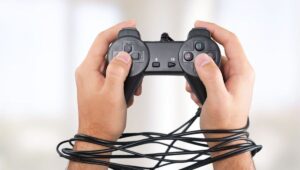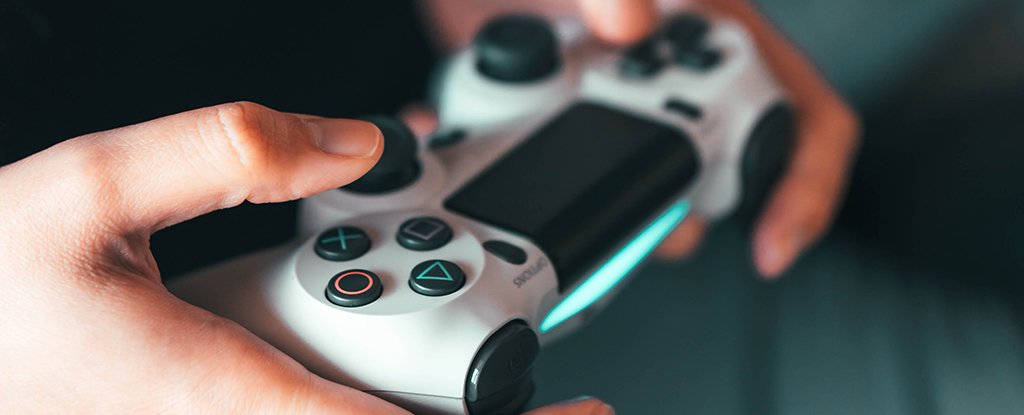For some individuals, gaming can spiral out of control, leading to detrimental consequences in various aspects of their lives. Gaming addiction, also known as gaming disorder, is a serious condition that can have profound effects on mental health, relationships, and overall well-being. Fortunately, there are effective treatments available to help individuals regain control. In this guide, we will explore the various aspects of gaming addiction treatment, from recognizing the signs and symptoms to seeking professional help and implementing strategies for recovery.
Contents
What Is Internet Gaming Disorder?
 Internet Gaming Disorder (IGD) is a condition characterized by persistent and recurrent engagement in internet gaming. And, leading to clinically significant impairment or distress. It is recognized as a behavioral addiction and is included in the “Conditions for Further Study” section of the DSM-5, published by the American Psychiatric Association.
Internet Gaming Disorder (IGD) is a condition characterized by persistent and recurrent engagement in internet gaming. And, leading to clinically significant impairment or distress. It is recognized as a behavioral addiction and is included in the “Conditions for Further Study” section of the DSM-5, published by the American Psychiatric Association.
Criteria for diagnosing Internet Gaming Disorder according to the DSM-5 include:
- Preoccupation with Gaming: The individual thinks about gaming activities excessively, even when not engaged in gaming, and may anticipate the next gaming session.
- Withdrawal Symptoms: The individual experiences withdrawal symptoms when gaming is taken away or when unable to play, such as irritability, anxiety, or sadness.
- Tolerance: The individual needs to spend increasing amounts of time gaming to achieve the desired level of excitement or satisfaction.
- Unsuccessful Attempts to Control: The individual repeatedly attempts to reduce gaming time or quit altogether but is unsuccessful.
- Loss of Interest in Other Activities: The individual loses interest in previous hobbies, social activities, or relationships due to gaming.
- Continued Excessive Use Despite Negative Consequences: The individual continues to engage in gaming despite experiencing negative consequences. Such as poor academic or occupational performance, strained relationships, or physical health problems.
- Deception or Cover-Up: The individual may lie to family members, friends, or therapists about the amount of time spent gaming or the extent of their gaming-related problems.
- Escape or Relieve Negative Mood: The individual uses gaming as a way to escape from or relieve negative mood states, such as feelings of guilt, anxiety, or depression.
- Jeopardizing or Losing Opportunities: The individual jeopardizes or loses significant opportunities in education, career, or personal life due to excessive gaming.
To receive a diagnosis of Internet Gaming Disorder, these symptoms must persist for at least 12 months. Although the duration requirement may be shortened if the symptoms are severe. Also, it’s important to note that not everyone who engages in Internet gaming will develop Internet Gaming Disorder.
What Are The Challenges In Gaming Addiction?
The following are common challenges faced by individuals with gaming addiction:
1. Recognition and Diagnosis
One of the primary challenges in gaming addiction is the recognition and diagnosis of the disorder. Due to its relatively recent inclusion in diagnostic manuals like the DSM-5, there can be a lack of awareness among both individuals and healthcare professionals.
2. Stigma and Misunderstanding
Gaming addiction is often stigmatized and misunderstood, leading to individuals feeling ashamed or reluctant to seek help. There may be societal perceptions that gaming is simply a recreational activity rather than a potentially addictive behavior requiring intervention and treatment.
3. Lack of Treatment Resources
Another challenge is the limited availability of specialized treatment resources for gaming addiction. Many healthcare systems may not have dedicated programs or professionals trained in treating gaming addiction. And, making it difficult for individuals to access appropriate care.
4. Co-occurring Disorders
Gaming addiction often co-occurs with other mental health conditions such as depression, anxiety, or substance abuse disorders. Treating gaming addiction in the context of these co-occurring disorders can be complex and may require a comprehensive, integrated approach.
5. Accessibility and Technology
The widespread accessibility of gaming platforms and the constant evolution of technology present challenges in managing gaming addiction. With the rise of mobile gaming and online multiplayer games, individuals can easily access games anytime and anywhere. Thus, making it harder to control gaming behavior.
6. Withdrawal and Relapse
Like other addictive behaviors, individuals struggling with gaming addiction may experience withdrawal symptoms when attempting to reduce or stop gaming. Additionally, the risk of relapse is high, especially without adequate support and coping strategies in place.
Addressing these challenges requires a multi-faceted approach involving education, awareness-raising, policy initiatives, and the development of specialized treatment resources tailored to the unique needs of individuals struggling with gaming addiction.
What Are the Best Gaming Addiction Treatment Options?
 The best gaming addiction treatment options typically involve a combination of therapeutic approaches, lifestyle changes, and support systems tailored to the individual’s needs. Here are some effective treatment options:
The best gaming addiction treatment options typically involve a combination of therapeutic approaches, lifestyle changes, and support systems tailored to the individual’s needs. Here are some effective treatment options:
Family Therapy
Since gaming addiction can impact family dynamics and relationships, involving family members in therapy can be beneficial. Family therapy helps improve communication, set boundaries, and address underlying family issues that may contribute to gaming addiction.
Support Groups and Peer Counseling
Support groups, such as Gamblers Anonymous or online gaming addiction forums, provide a sense of community and understanding among individuals struggling with gaming addiction. Peer counseling allows individuals to share their experiences, receive support, and learn from others who have successfully overcome gaming addiction.
Technology-Assisted Interventions
Technology can also be utilized as part of the treatment process. Smartphone apps, such as habit-tracking apps or those designed to limit screen time, can help individuals monitor and manage their gaming habits. Virtual reality exposure therapy may also be used to simulate gaming environments and help individuals confront and overcome triggers associated with gaming addiction.
Lifestyle Changes
Encouraging lifestyle changes can help individuals develop healthier habits and reduce the time spent gaming. This may include establishing a structured daily routine, incorporating physical exercise and outdoor activities, pursuing hobbies and interests outside of gaming, and improving sleep hygiene.
Mindfulness and Stress Management Techniques
Teaching mindfulness and stress management techniques can help individuals become more aware of their thoughts and feelings, manage cravings and impulses, and cope with stressors in healthier ways. Mindfulness practices, such as meditation and deep breathing exercises, can promote emotional regulation and reduce the urge to engage in excessive gaming.
Medication
In some cases, medication may be prescribed to address underlying mental health conditions that contribute to gaming addiction, such as depression, anxiety, or attention-deficit/hyperactivity disorder (ADHD). However, medication is typically used in conjunction with other therapeutic interventions. Also, should be carefully monitored by a healthcare professional.
Long-Term Maintenance and Relapse Prevention
It’s essential to focus on long-term maintenance and relapse prevention strategies to support ongoing recovery. This may involve continued therapy, regular monitoring of gaming habits, setting realistic goals, building a strong support network, and developing healthy coping mechanisms for managing cravings and triggers.
Ultimately, the most effective treatment approach will depend on the individual’s specific needs, preferences, and circumstances. A comprehensive treatment plan should be tailored to address the underlying factors contributing to gaming addiction and support the individual in achieving sustained recovery and improved overall well-being.
How Cognitive Behavioral Therapy For Gaming Addiction Helps?
 Cognitive-behavioral therapy (CBT) is a highly effective therapeutic approach for treating gaming addiction.
Cognitive-behavioral therapy (CBT) is a highly effective therapeutic approach for treating gaming addiction.
Steps
Here’s how CBT helps individuals struggling with gaming addiction:
Identifying and Challenging Negative Thoughts
CBT helps individuals recognize and challenge negative thoughts and beliefs that contribute to gaming addiction. This may include beliefs such as “I need gaming to escape from my problems” or “I can’t have fun without gaming.” By identifying and disputing these irrational beliefs, individuals can develop more balanced and realistic thinking patterns.
Understanding Triggers and Cravings
CBT helps individuals identify the specific triggers and cravings that lead to excessive gaming. Triggers may include stress, boredom, social isolation, or negative emotions. By understanding the underlying triggers, individuals can learn to anticipate and manage cravings more effectively.
Developing Coping Strategies
CBT equips individuals with practical coping strategies to deal with cravings and urges to game. These strategies may include relaxation techniques, distraction techniques, cognitive restructuring, and problem-solving skills. By learning alternative ways to cope with stress and negative emotions, individuals can reduce reliance on gaming as a coping mechanism.
Behavioral Modification
CBT focuses on modifying behaviors associated with gaming addiction. This may involve setting specific goals for reducing gaming time, implementing strategies to limit access to gaming devices or platforms, and gradually increasing engagement in alternative activities. By gradually changing behavioral patterns, individuals can develop healthier habits and reduce gaming-related problems.
Addressing Co-occurring Issues
CBT helps individuals address co-occurring issues that may contribute to gaming addiction, such as depression, anxiety, or low self-esteem. By targeting underlying psychological issues, CBT can help individuals improve their overall well-being and reduce the need to escape through gaming.
Improving Problem-Solving Skills
CBT teaches individuals effective problem-solving skills to address the root causes of gaming addiction. This may involve identifying underlying issues such as relationship problems, academic or occupational stressors, or financial difficulties, and developing practical solutions to address these problems.
Relapse Prevention
CBT provides individuals with tools and strategies for preventing relapse and maintaining long-term recovery. This may involve identifying high-risk situations, developing coping strategies for managing cravings and triggers, building a support network, and setting realistic goals for maintaining abstinence from gaming.
Overall, CBT empowers individuals to take control of their thoughts, feelings, and behaviors related to gaming addiction. By addressing underlying cognitive and behavioral patterns, CBT helps individuals develop healthier coping mechanisms. And achieve sustained recovery from gaming addiction.
Conclusion
In conclusion, gaming addiction is a serious issue that can have profound impacts on individuals’ lives, affecting their mental health, relationships, and overall well-being. However, there are effective gaming addiction treatment options available, including cognitive-behavioral therapy, support groups, and lifestyle changes. All of which can help individuals regain control of their gaming habits and lead fulfilling lives.
By seeking help, developing coping strategies, and building a strong support network, individuals struggling with gaming addiction can overcome challenges and maintain healthy gaming habits in the long term. Remember, you’re not alone. Thus, it’s never too late to seek support and make positive changes.
